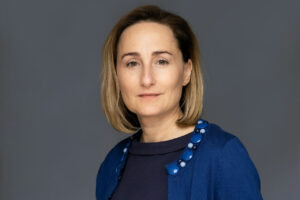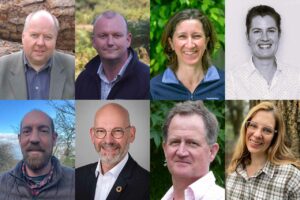
The Institute of Chartered Foresters interviews Professor Anna Lawrence MICFor, as she prepares to address the Institute’s flagship conference: The UK’s Role in Global Forestry this April in Oxford.
Who is Professor Anna Lawrence MICFor
Anna Lawrence is an independent consultant and part-time professor of social forestry at the University of the Highlands and Islands, researching community and urban forestry, and the culture and organisation of professional forestry.
Anna is also a director of the Community Woodland Association, current Convenor of the independent Forest Policy Group, and a member of the independent CATS (Community Asset Transfer Scheme) panel for Forest Enterprise Scotland.
She was co-ordinating lead author of the new UNECE study on forest ownership. Anna will be talking about the findings at the conference.
She has been working for 30 years in social and community forestry, initially in international development mostly in South America and Asia. She led the human ecology research group at Oxford University’s Environmental Change Institute from 2001 to 2008, and was Head of Social and Economic Research at Forest Research, the research agency of the UK’s Forestry Commission from 2008 to 2015.
Tell us about your presentation?
I’m going to be presenting a new study on forest ownership. It provides the ‘bigger picture’ view of ownership, based on data from about 35 countries, managed by the United Nations Economic Commission for Europe (UNECE). It’s the first time that we have such comprehensive data on forest ownership across Europe and North America. For example, the study includes both private and public forest owners, and distinguishes between national (state) ownership and local government ownership. It tells us who the owners are, but it goes further than that and shows how forest ownership is changing, and why; and how governance and social structures affect forest owners and management. I have been coordinating a team of about fifteen lead authors; I will try to give you a flavour of their insights!
Why is your presentation important for our conference?
It’s essential to know more about forest ownership. Forest owners are the interface between society and policy, and the goods and services provided by the forest. Some countries regulate forests more than others, but ultimately the owners, their decisions and activities affect the kinds of forests that we live with. I think it is fascinating to see the comparisons across countries, and particularly to see how ownership is changing. These patterns and trends affect all of us working with forestry.
What is the biggest challenge(s) facing global forestry?
That’s a huge question. So first, adapting. Not just to climate change, but to societal and political change as well. Then, being resilient and also fair. I do have a great concern about the increasing polarisation of forestry when the gap between commercial and nature-friendly, or people-friendly, forestry seems to be getting wider. So perhaps I could say that the biggest challenge is to keep learning from each other; working out how productive forests can be diverse forests owned by a wide range of people, and how community forests can, in turn, be productive forests.
What role should the UK play in global forestry?
I’d like to see the UK doing more forestry, with a wider range of owners, and addressing that deep split in management objectives and benefits, that I mentioned.
On the other hand, there is a lot of innovation in forestry in the UK, and in the devolved nations: community engagement, support for small businesses, harvesting machinery for small-scale woodlands, woodland social enterprises, forestry helping in landscape regeneration. We have a lot to share internationally, based on these new experiences, because we have a relatively dynamic forestry culture, which is constantly adjusting to changing context, with a high level of public interest in our relationship with trees and forests.
How did you get into forestry?
After doing a masters in forestry (where this conference is being held!) I got a job in Bolivia working on a UK aid project, using agroforestry and timber species in innovative planting schemes with farming communities who were colonising the Amazon basin. I continued working in international development for another 20 years and it quickly became clear to me that the social component of forestry is just as important as the technical, and that participatory research provides important answers. It’s nice to see that focus emerging in the UK as well, if we can just get past that polarisation thing…
For further information and to book www.charteredforesters.org/event/icf-national-conference-global-forestry
Follow us #ICFGlobalForestry






